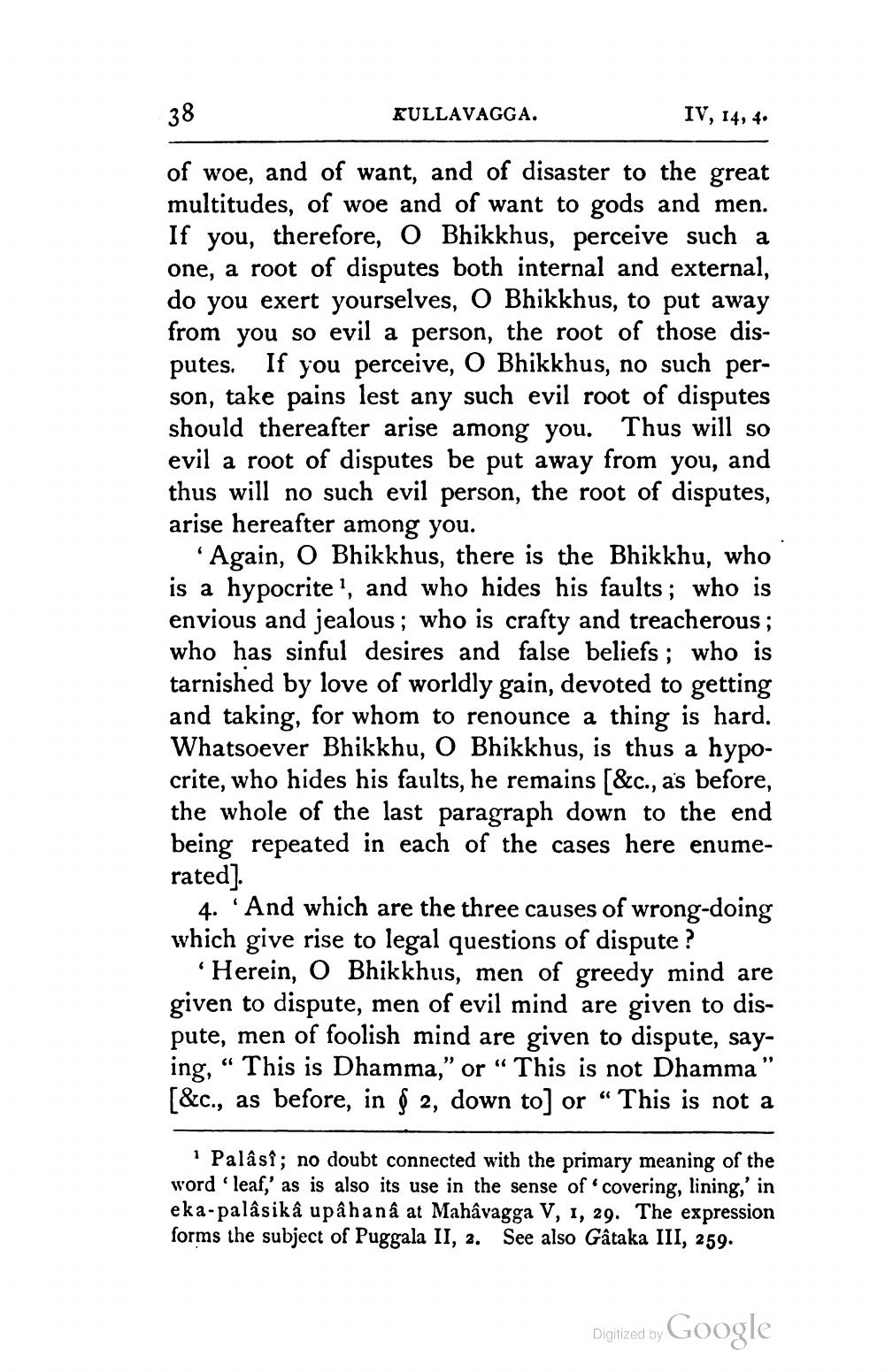________________
38
IV, 14, 4.
of woe, and of want, and of disaster to the great multitudes, of woe and of want to gods and men. If you, therefore, O Bhikkhus, perceive such a one, a root of disputes both internal and external, do you exert yourselves, O Bhikkhus, to put away from you so evil a person, the root of those disputes. If you perceive, O Bhikkhus, no such person, take pains lest any such evil root of disputes should thereafter arise among you. Thus will so evil a root of disputes be put away from you, and thus will no such evil person, the root of disputes, arise hereafter among you.
'Again, O Bhikkhus, there is the Bhikkhu, who is a hypocrite1, and who hides his faults; who is envious and jealous; who is crafty and treacherous; who has sinful desires and false beliefs; who is tarnished by love of worldly gain, devoted to getting and taking, for whom to renounce a thing is hard. Whatsoever Bhikkhu, O Bhikkhus, is thus a hypocrite, who hides his faults, he remains [&c., as before, the whole of the last paragraph down to the end being repeated in each of the cases here enumerated].
KULLAVAGGA.
4. 'And which are the three causes of wrong-doing which give rise to legal questions of dispute?
'Herein, O Bhikkhus, men of greedy mind are given to dispute, men of evil mind are given to dispute, men of foolish mind are given to dispute, saying, "This is Dhamma," or "This is not Dhamma" [&c., as before, in § 2, down to] or "This is not a
1 Palâsî; no doubt connected with the primary meaning of the word 'leaf,' as is also its use in the sense of 'covering, lining,' in eka-palâsikâ upâhanâ at Mahâvagga V, 1, 29. The expression forms the subject of Puggala II, 2. See also Gâtaka III, 259.
Digitized by Google




